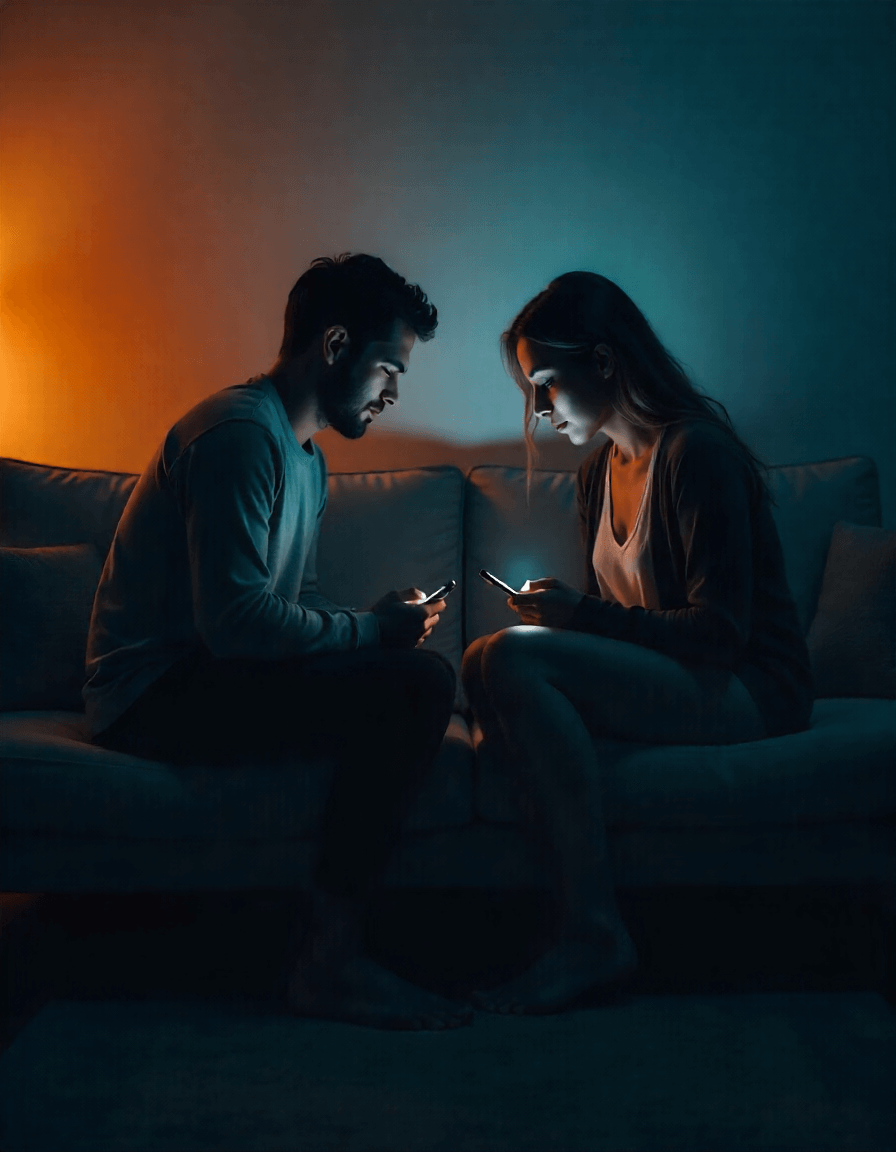Every couple goes through phases of closeness and distance. Yet when you start feeling disconnected in a relationship, the sense of separation can grow heavy. You may notice less quality time, more silence, or a nagging loneliness despite being together. This emotional drift doesn’t always mean the end. Instead, it highlights the need to recognize patterns, address the lack of communication, and take compassionate steps forward.
Understanding why partners feel disconnected helps you see the relationship more clearly and creates a chance for realignment rather than withdrawal.
What Does Feeling Disconnected in a Relationship Mean?
Feeling disconnected in love doesn’t necessarily mean you no longer care. Instead, it reflects a growing emotional distance that changes how safe and supported you feel with your partner.
Signs may include:
- Conversations feel shallow or routine.
- Physical closeness fades even if you spend time together.
- One or both partners feel like roommates rather than lovers.
- Emotional needs feel overlooked or dismissed.
It’s normal to feel disconnected at certain points, especially in long term relationships. But when disconnection lingers, it can lead to deep feelings of loneliness, misunderstandings, and resentment.
Causes of Disconnection in Relationships
1. Lack of Communication
When couples stop sharing openly, lack of communication widens the gap. Avoiding hard talks may feel easier, but it only keeps us from feeling the pain temporarily. Over time, silence fuels emotional distance.
2. Stress and External Pressures
Work, family, and financial strain take energy away from the relationship. Stress makes us irritable, less present, and more likely to shut down.
3. Lack of Quality Time
Without intentional quality time, partners drift apart. Even living together doesn’t guarantee emotional connection. Time together has to be mindful, not just routine.
4. Unresolved Conflicts
When issues are swept under the rug, partners start to feel disconnected. Old wounds resurface in arguments or subtle coldness, creating a cycle of distance.
5. Different Growth Paths
As people evolve, sometimes one partner’s personal growth feels out of sync with the other. This difference may feel like the relationship is misaligned, though it’s often just a call for deeper connection.
The Emotional Impact of Feeling Disconnected
When partners stop feeling close, the result often includes:
- Loneliness even when physically present.
- Emotional withdrawal as a defense against hurt.
- Overthinking and misreading small actions or words.
- A decline in intimacy and shared laughter.
These shifts often stem from lack of communication, limited quality time, and avoidance of emotional honesty.
Over time, the pain of separation builds. But noticing these patterns also gives you the power to change them.
How to Reconnect With Your Partner
1. Start With Honest Conversations
Courageous conversations heal emotional distance. Share how you feel without blame: “I feel disconnected when we don’t spend time together.” This builds awareness and opens the door to repair.
2. Prioritize Quality Time
Dedicate intentional quality time—walks, meals, or even small rituals. What matters is being fully present. Even short moments bring closeness back.
3. Rebuild Emotional Intimacy
Practice small acts of affection and vulnerability. Tell your partner what you appreciate. Express fears, joys, and even daily details to strengthen the relationship.
4. Address the Root Causes
Look at the lack of communication, external stress, or unspoken conflicts that fuel disconnection. Seeking therapy together can provide guidance.
5. Practice Patience in Long Term Relationships
Reconnection doesn’t happen overnight. In long term bonds, healing is a gradual process. Gentle persistence shows love even during difficult phases.
When Disconnection Becomes Too Painful
Sometimes the relationship feels so strained that repair seems impossible. In those moments, self-reflection matters:
- Does the relationship align with your values?
- Are your needs consistently unmet?
- Does the bond bring more pain than peace?
Not every connection lasts forever. Recognizing when a relationship is no longer healthy is also an act of love—for both people involved.
Conclusion: Turning Disconnection Into Growth
Feeling disconnected in a relationship doesn’t mean you’re doomed to separation. Instead, it signals an invitation: to look honestly at your bond, to name the emotional distance, and to rebuild through presence, honesty, and love.
Every couple experiences moments of disconnection. The difference lies in whether you allow it to define your bond—or use it as a stepping stone toward deeper connection.
With intentional communication, renewed quality time, and compassion, even the hardest seasons can guide you to a stronger, more authentic partnership.













